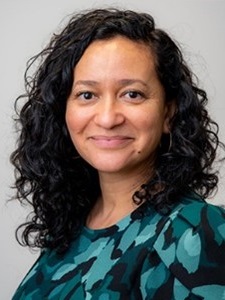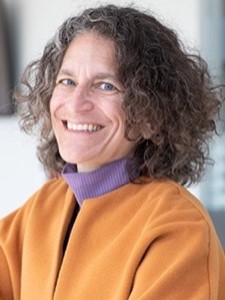Statement from Dr. Charu Kaushic on World AIDS Day and Indigenous AIDS Awareness Week
A time to reflect and recommit

December 1 is World AIDS DayFootnote 1. This year, December 1 to December 7 is also Indigenous AIDS Awareness Week (IAAW)Footnote 2, a time to increase awareness and knowledge about HIV/AIDS in Indigenous communities in Canada.
Given that HIV treatments have been around for 30 years, and we have prevention methods and people are living with HIV for decades, it is easy to assume that HIV is not a problem any longer here in Canada.
You may be surprised to learn that, in Canada, there were 1,722 newly diagnosed cases of HIV in 2021. And while HIV can affect anyone—regardless of age, sex, gender, sexual orientation, or ethnic group—there are a number of key population groups in Canada that are disproportionately affected. Even across key population groups, inequitable outcomes exist as communities experience differing impacts of stigma, racism, homophobia, transphobia, sexism and other forms of discrimination and systemically entrenched oppression. These disparities amongst communities manifest in regional disparities across the country. For example, Saskatchewan and Manitoba had the highest rates of new diagnosesFootnote 3Footnote 4Footnote 5, with rates more than double the national average. Similarly, Black people make up 3.5% of Canada’s population, but Black women made up 42% of new HIV cases amongst women in 2019Footnote 6.
The theme for World AIDS Day 2023 is Let Communities Lead. Central within the theme is the need for communities’ leadership roles to be centred in all HIV plans and programs, and to be fully and reliably funded.
At CIHR, we are doing our part to champion and fund community-led approaches to research through our Community-Based Research Program, which has supported research, knowledge mobilization and capacity-building initiatives in HIV/AIDS for nearly 20 years through catalyst and operating grants. Further, the Collaborative Centres for HIV/AIDS Community-Based Research provides additional funding to eligible community organizations.
This year, we are excited to announce the upcoming launch of a new community-based research funding opportunity, Team Grants: Community-Based Research (CBR) for HIV/AIDS and STBBI (Sexually Transmitted and Blood-Borne Infections). Through use of dedicated funding pools for each key population disproportionately affected by STBBI, as well as funding pools supporting distinction-based approaches for research led by First Nations, Inuit, and Métis Peoples, this funding opportunity has been designed to fund a greater diversity of community-centred partnerships and truly let communities lead. The opportunity will launch this winter.
Through the CIHR HIV/AIDS and STBBI Research Initiative, we oversee the administration of $21 million of annual funding that directly supports research and knowledge mobilization efforts for HIV/AIDS and other STBBI. The research initiative is continually seeking applications from community members, people with living and lived experiences of HIV/AIDS and other STBBI, and researchers to serve on its advisory committee. If you, or someone you know, would like to have your community’s voice heard and get involved in advising on the direction of research funding in Canada, we encourage you to apply by December 31, 2023 to ensure consideration in the next review of applications.
This World AIDS Day and Indigenous AIDS Awareness Week, I invite you to reflect on the progress made to address HIV/AIDS, pay tribute to those we have lost, and recommit ourselves to the global goal of eliminating HIV/AIDS as a public health threat. Our communities are key in leading the way—and we’ll be right there with them.
In solidarity and hope,
Dr. Charu Kaushic
Scientific Director
CIHR Institute of Infection and Immunity
Why is community leadership in research key to eliminating HIV?
"The traditional ways of knowing of First Nations, Inuit, and Métis Communities bring a valuable and essential viewpoint to understanding health and well-being. That is why Indigenous communities across Canada are taking a leadership role to promote awareness and knowledge to prevent new HIV infections, support those who are already affected, and work to end the stigma and discrimination surrounding HIV/AIDS. By working together, it is our shared hope that we will one day see a world free of AIDS/HIV."
"Despite tremendous progress in HIV care and treatment in Canada, women living with HIV still face many inequities that extend to survival, facing a significantly shorter life expectancy than men. But these trends are changing, thanks to the leadership, priorities and expertise contributed by women living with HIV. Community-led research is helping to drive the HIV research response in Canada, design programs and policies that reduce gender-related gaps in care, and to create a healthy, thriving future for all people living with HIV."
"From the very beginning of the epidemic in the early 1980s, communities of people with lived experience of HIV & AIDS played a foundational role in creating meaningful and effective social, political, and public health responses to HIV/AIDS. They have led the way and created a global health social movement that continues to challenge and transform collective responses to illness, suffering, and inequality not only in the context of HIV/AIDS, but well beyond. Community leadership continues to be essential to ensure adequate and appropriate data and lived experience are driving decision-making concerning those living with, or at risk of HIV."
"The toxic drug crisis and rising rates of HIV among people who use drugs are both increasingly urgent issues for Canadians, impacting countless individuals and their loved ones. Meaningful, respectful engagement with the community on these intersecting challenges is critical. It allows researchers to tap into invaluable insights, foster trust and tailor interventions that are evidence-informed, culturally competent, and genuinely impactful."
- Date modified:



